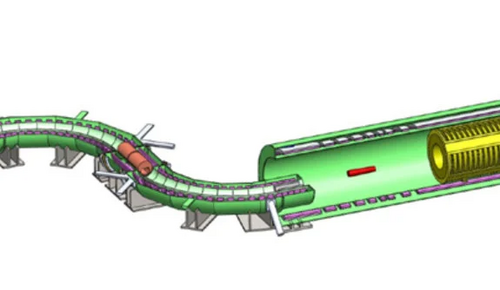
A research team led by Yale physicist Sarah Demers has been accepted into an international collaboration to push the known boundaries of physics.
By Jim Shelton
A research team led by Yale physicist Sarah Demers has been accepted into an international collaboration to push the known boundaries of physics.
The Mu2e Collaboration — the muon-to-electron conversion experiment — is based at the Fermilab facility in Illinois and includes 23 universities and 10 domestic and international research laboratories. Its mission is to probe physics questions at energy scales 1,000 times higher than what can be attempted at other experiment sites.
In the experiment, a beam of muons (heavy, unstable subatomic particles) will be produced from protons that interact with a tungsten target. The muons, in turn, will convert to electrons. The Demers group will contribute its experience with triggering and data acquisition for the experiment.
“Many ideas that physicists have had — new theories — if true, would result in this reaction happening at a measurable rate,” Demers said.
The Mu2e experiment is one of several experiments around the world currently probing new areas of physics. In Switzerland, for example, the ATLAS experiment at the Large Hadron Collider will resume in 2015 after upgrades to run at higher energy. Yale physicists Keith Baker, Paul Tipton and Demers have research groups involved in the ATLAS experiment.
This story is adapted from the Yale News Story of December 15, 2014 by Jim Shelton. See below for the link to the original story.